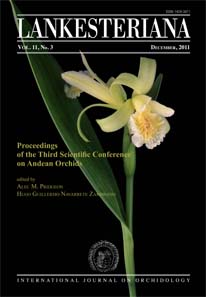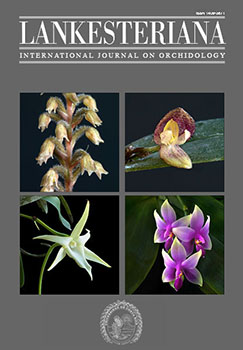A look at "The orchid book" in celebration of Charles Darwin's 200th birthday
DOI:
https://doi.org/10.15517/lank.v11i3.18276Keywords:
Charles Darwin, Orchidaceae, pollinationAbstract
On February 12, 2009, the world celebrated the 200th birthday of Charles Darwin. His contributions to the study of evolution and human origins are well known, but his botanical research is underappreciated. Darwin published nine different books that focused on domesticated plants, insectivorous plants, climbing plants, and other botanical subjects, but his study on orchids is the most notable because it was the first book he published after the Origin of Species (1859). Darwin’s book On the Various Contrivances by which British and Foreign Orchids are Fertilised by Insects (1862) was a systematic overview of both temperate and tropical orchid groups and their pollinators. The nine chapters treated members of Orchideae, Arethuseae, Neottieae, Vanilleae, Malaxideae, Epidendreae, Vandeae, Cymbidieae (especially Catasetum), and Cypripedioideae. Orchid flowers were described and illustrated by Darwin in great detail, careful observations on pollinator behavior were recorded, and a healthy dose of speculation was presented. Our understanding of the phylogeny, pollination, physiology, and overall natural history of these orchid groups has advanced tremendously in the last 150 years. Few people realize that “the orchid book” is subtitled, “. . . and on the Good Effects of Intercrossing.” That subject was of great concern to Darwin, and the orchids provided concrete examples necessary to substantiate his theory. Even today, orchids and Darwin’s orchid book continue to inspire evolutionary biologists and exemplify the power of natural selection.
Downloads
Downloads
Published
How to Cite
Issue
Section
License
According to the Open Access policy promoted by the University of Costa Rica, all the papers published by Lankesteriana are licensed under the Creative Commons copyright and can be downloaded free of charge. The journal holds copyright and publishing rights under the CC BY-NC-ND 3.0 CR license.
Before the publication of the materials submitted by the author(s) in LANKESTERIANA, the author(s) hereby assign all rights in the article to the Lankester Botanical Garden.





